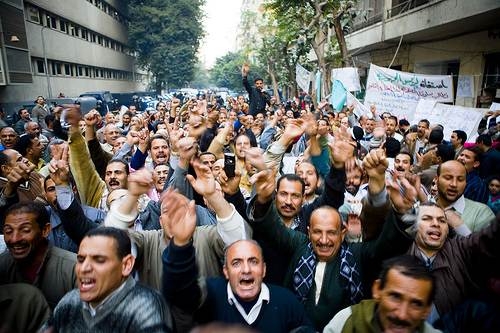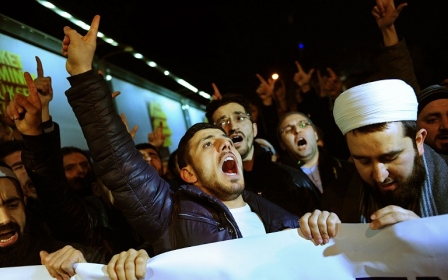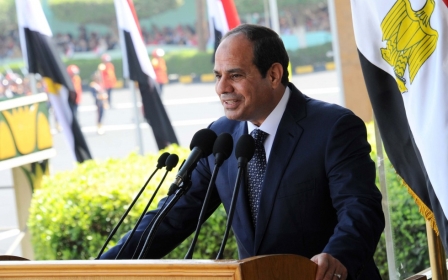Strike at Mahalla textile factory enters third day in Egypt

A strike at the Holding Company for Cotton Spinning and Weaving in the Egyptian town of Mahalla entered its third day on Thursday, with over 10,000 workers downing tools in protest at, amongst other things, the government’s reneging on plans to boost the textile industry.
Workers repeated their call for the Prime Minister Ibrahim Mahlab to visit the strikers and keep his promise to pump fresh investment into the company and avoid selling off any part of it.
Demonstrating outside the factory, they vowed to continue striking until their demands are met, according to private Eyptian daily Yaum 7.
The Centre for Trade Unions and Workers Services announced the strike in a statement on Tuesday.
"More than 10000 male and female workers in the Mahalla textile company began a strike this morning and an open-ended sit-in at the company's headquarters,” read the statement, “in order to claim the rest of the (annual profits) for two months of the financial year 2103/2014, to start swiftly the company's development plans as the government promised, to investigate corruption claims and prosecute corrupt (officials)."
One strike leader, Mohamed Assad, told Daily Egypt News on Wednesday that the main concern for the workers was the “inefficient leadership of the administration” and pointed out that “a number of media outlets only focused on the financial demands and ignored the others.”
He also pointed out that “security guards at the factory gates are preventing local journalists from entering and covering the strike.”
At a meeting in December 2014 between the Minister of Industry and Foreign Trade Mounir Fakhry Abdel Nour, the chairman of the Cotton and Textile Industries Holding Company, chairman of the Egyptian Chamber of Textile Industries, and chairman of General Union of Textile Workers, the Prime Minister promised to make the textile industry a “national project” and continue subsidies in the face of heavy losses in the sector.
However, last week, Minister of Agriculture and Land Reclamation Adel El-Beltagy, announced that the state would not be offering any form of subsidies for cotton farmers or spindles during the next season.
Striking workers have seen this as betrayal.
“The lack of raw materials is one of the problems facing the company,” Assad added.
“Although Prime Minister Ibrahim Mehleb promised the workers in previous meetings that the government will provide enough supply cotton, the promises were not met.”
The Mahalla textile complex has frequently been a focal point of trade union activity and worker militancy.
Strikes by workers in the complex, starting with a walkout in 2006, have been highlighted by many as the beginning of the movement that eventually led to the 2011 revolution that overthrew the government of aging autocrat Hosni Mubarak.
The Mahalla workers were also the prime movers behind the 2008 Egyptian general strike, also referred to as the “Egyptian Intifada” which also gave birth the to April 6 Youth Movement.
“6 April 2008 wasn’t an uprising, it was the real revolution,” asserted Karim El-Beheiry, a labour activist and former Mahalla employee.
“People refer to the events of 2008 as a rehearsal, and say 25 January 2011 was the first wave of the revolution,” he told Al-Monitor “This isn’t true, 6 April was a genuine revolution against the regime and it wasn’t hijacked by the Muslim Brotherhood, as was 25 January.”
“25 January was the second wave of the revolution.”
Middle East Eye propose une couverture et une analyse indépendantes et incomparables du Moyen-Orient, de l’Afrique du Nord et d’autres régions du monde. Pour en savoir plus sur la reprise de ce contenu et les frais qui s’appliquent, veuillez remplir ce formulaire [en anglais]. Pour en savoir plus sur MEE, cliquez ici [en anglais].




